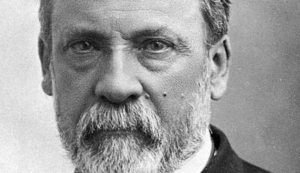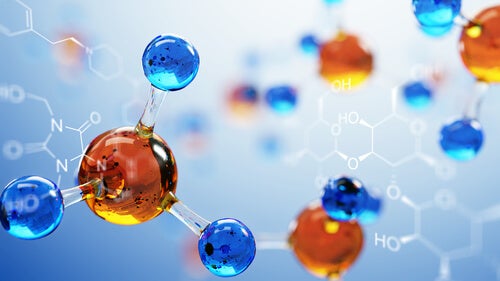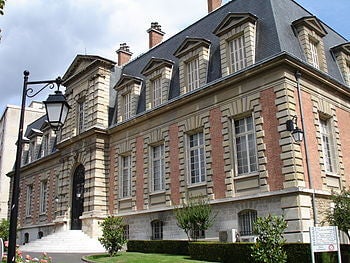Louis Pasteur: His Life and Legacy

There are people who, thanks to their ingenuity, are able to surprise humanity. Regardless of the field, throughout history, we’ve encountered several people who, for several different reasons, dared to innovate, and changed our conception of the world. One of these geniuses was Louis Pasteur. Thanks to his contributions and innovations, he established himself as a pioneer of science.
It’s amazing to think that we’ve had people like him. People to whom we owe countless advances that, even today, continue to favor our scientific progress. However, his work, like that of many other geniuses, was quite controversial at the outset.
Novelty and change are frightening. They often generate a certain amount of rejection and then, over time, are revalued. Today, no one doubts Pasteur’s contributions.
In this article, we’ll talk about Louis Pasteur, his life, and also his contributions to the scientific world. Join us in this adventure in which you’ll find the most fascinating and innovative contributions of the man who has been considered a pioneer of modern medicine and microbiology.
“Do not let yourself be tainted with a barren skepticism.”
-Louis Pasteur-
About Pasteur’s life
Louis Pasteur was a chemist and bacteriologist of French origin. He was born on 27th December 1822 in Dola (Franche-Comté, France). In his childhood, he seemed to show a greater interest in art than in books and science, leaning mainly towards painting.
At school, Pasteur didn’t show much aptitude in the scientific field and little interest in studies. His father forced him to continue his secondary school studies. Pasteur obtained his bachelor’s degree in literature in 1840, and later became a scientist in 1842. That same year, he entered the École normale supérieure in Paris.
Years later, at the same school, he worked as a physics teacher, although he would also show a deep interest in chemistry. He taught chemistry in Dijon and Strasbourg. In Strasbourg, he met Marie Laurent, who would become his wife in 1949. Five children were born from that marriage, of which only two survived. Sadly, typhus took the lives of the other three. The children who survived were Jean-Baptiste and Marie-Louise.
As we can see, geniuses sometimes don’t really fit into the educational system and they don’t find it easy to choose their best study options. In the case of Pasteur, nothing in his childhood seemed to indicate that he would opt for chemistry, and yet, these days, he’s best known for that area of study.

Louis Pasteur: his scientific contributions
Louis Pasteur left us a great legacy thanks to the scientific discoveries he made and his performance in education. Here are some of his main discoveries, contributions, and acknowledgments:
- Dean of the Faculty of Science. He was appointed Dean of the University of Lille in 1854.
Pasteur Institute. He founded the Institute in 1887 and directed it until his death. The Institute is one of the pioneers in the prevention and treatment of infectious diseases and, of its many researchers, eight have received the Nobel Prize. Among its contributions is the fact that it was the first laboratory to isolate HIV. - Laboratory. He directed the laboratory of the Ecole Normale de Paris from 1867.
- Optical isomerism. At the Pasteur Institute, he discovered that, just as our hands are not the same, but are symmetrical, there are also almost identical crystals, which have spectacular symmetry. He solved the mystery of tartaric acid that existed in two forms with identical chemical composition, but with different properties.
More of Pasteur’s contributions
- Pasteurization. Louis Pasteur discovered that two microorganisms were involved in fermentation. They were both yeasts: one produced alcohol, the other lactic acid. Later, he innovated with a method to eliminate these microorganisms. At first, the industry rejected his ideas, but he managed to demonstrate them and they were accepted.
- Microbial theory. Pasteur discovered that there was a link between disease and fermentation. He established that, just as microorganisms caused the decomposition of some products, there could be some that invaded a healthy body, causing illness. These theories led him to investigate contagious diseases.
- Spontaneous Generation. He disproved the theory of spontaneous generation, demonstrating that the processes of organic decomposition and fermentation are the result of the action of living organisms. In addition, he showed that the microorganisms that appeared came from the outside. He made this discovery by observing flasks containing filters that prevented contact with the outside world.
Thanks to his discoveries regarding microbial theory, he managed to advance the development of vaccines, something that is still very useful today. Pasteurization, on the other hand, is a wonderful process that guarantees the safety of several food products.
Pasteur also left us several antiseptics that have radically changed medical attention. Pasteur’s research has contributed to the improvement of the world as we know it today and will probably continue to do so in the future.

Louis Pasteur, his legacy
Pasteur devoted a large part of his life to research. This research and discoveries are reflected in his writings and those of authors after him, who wrote about his legacy and complimented his work. Even today, Pasteur is still referred to as one of the greatest scientists of the 19th century. Here are some of his most noteworthy works:
- Studies on wine, its diseases, the causes of these diseases: New procedures for the conservation of aging (1866). This is a work by Pasteur in which he talks about the methods he discovered to eliminate the microorganisms that can degrade wine.
- Molecular Dissymmetry. In this work, Pasteur leaves us the legacy of tartaric acid dimorphism, also showing the opposing action of each of the crystalline forms it possesses.
- Studies on Fermentation (1879/2005): In homage to Pasteur’s contributions, the site beerbooks.com has reprinted his studies on fermentation. It reproduced it in the same ways that it appeared in its first English version Studies on Fermentation in 1879, and even included the scientist’s illustrations.
- Communicable diseases. In several of his laboratory notes, he gave evidence of his studies on communicable diseases. He then studied the problem of silkworm, chicken cholera and contagious bovine pleuropneumonia, among others.
Some current texts
Some current texts still quote Pasteur, let’s see two very recent ones:
- “Reconciling Pasteur and Darwin to Control Infectious Diseases”: This is a scientific article by Alizon and Méthot (2018), in which they suggest that following the historical thread of Pasteur and Darwin would help to reconcile clinical microbiology, ecology, and evolution. In this way, we could understand pathology in an interdisciplinary way and establish new therapies. In addition to this, we would increase the efficiency of existing procedures.
- “Thank you, Edward. Merci, Louis” is a 2016 article by Daniel Dimaio for the scientific magazine Plos One. It highlights, among other things, Pasteur’s achievements, especially in relation to vaccines.
Louis Pasteur was definitely a pioneer of his time, and considered the founder of microbiology. He was also a multi-faceted author, who brought about important advances in the scientific and medical fields, and who left us one of the most prestigious research centers at an international level.
His was a life dedicated to education, research, and science in general. A scientist to whom we owe several incredible improvements in our quality of life, as well as methods that help fight disease and preserve different types of foods. For these reasons, we can say that Louis Pasteur was an unparalleled scientist.
“If perchance you should falter during the journey, a hand would be there to support you. If that should be wanting, God, who alone could take that hand from you, would Himself accomplish its work.”
-Louis Pasteur-
There are people who, thanks to their ingenuity, are able to surprise humanity. Regardless of the field, throughout history, we’ve encountered several people who, for several different reasons, dared to innovate, and changed our conception of the world. One of these geniuses was Louis Pasteur. Thanks to his contributions and innovations, he established himself as a pioneer of science.
It’s amazing to think that we’ve had people like him. People to whom we owe countless advances that, even today, continue to favor our scientific progress. However, his work, like that of many other geniuses, was quite controversial at the outset.
Novelty and change are frightening. They often generate a certain amount of rejection and then, over time, are revalued. Today, no one doubts Pasteur’s contributions.
In this article, we’ll talk about Louis Pasteur, his life, and also his contributions to the scientific world. Join us in this adventure in which you’ll find the most fascinating and innovative contributions of the man who has been considered a pioneer of modern medicine and microbiology.
“Do not let yourself be tainted with a barren skepticism.”
-Louis Pasteur-
About Pasteur’s life
Louis Pasteur was a chemist and bacteriologist of French origin. He was born on 27th December 1822 in Dola (Franche-Comté, France). In his childhood, he seemed to show a greater interest in art than in books and science, leaning mainly towards painting.
At school, Pasteur didn’t show much aptitude in the scientific field and little interest in studies. His father forced him to continue his secondary school studies. Pasteur obtained his bachelor’s degree in literature in 1840, and later became a scientist in 1842. That same year, he entered the École normale supérieure in Paris.
Years later, at the same school, he worked as a physics teacher, although he would also show a deep interest in chemistry. He taught chemistry in Dijon and Strasbourg. In Strasbourg, he met Marie Laurent, who would become his wife in 1949. Five children were born from that marriage, of which only two survived. Sadly, typhus took the lives of the other three. The children who survived were Jean-Baptiste and Marie-Louise.
As we can see, geniuses sometimes don’t really fit into the educational system and they don’t find it easy to choose their best study options. In the case of Pasteur, nothing in his childhood seemed to indicate that he would opt for chemistry, and yet, these days, he’s best known for that area of study.

Louis Pasteur: his scientific contributions
Louis Pasteur left us a great legacy thanks to the scientific discoveries he made and his performance in education. Here are some of his main discoveries, contributions, and acknowledgments:
- Dean of the Faculty of Science. He was appointed Dean of the University of Lille in 1854.
Pasteur Institute. He founded the Institute in 1887 and directed it until his death. The Institute is one of the pioneers in the prevention and treatment of infectious diseases and, of its many researchers, eight have received the Nobel Prize. Among its contributions is the fact that it was the first laboratory to isolate HIV. - Laboratory. He directed the laboratory of the Ecole Normale de Paris from 1867.
- Optical isomerism. At the Pasteur Institute, he discovered that, just as our hands are not the same, but are symmetrical, there are also almost identical crystals, which have spectacular symmetry. He solved the mystery of tartaric acid that existed in two forms with identical chemical composition, but with different properties.
More of Pasteur’s contributions
- Pasteurization. Louis Pasteur discovered that two microorganisms were involved in fermentation. They were both yeasts: one produced alcohol, the other lactic acid. Later, he innovated with a method to eliminate these microorganisms. At first, the industry rejected his ideas, but he managed to demonstrate them and they were accepted.
- Microbial theory. Pasteur discovered that there was a link between disease and fermentation. He established that, just as microorganisms caused the decomposition of some products, there could be some that invaded a healthy body, causing illness. These theories led him to investigate contagious diseases.
- Spontaneous Generation. He disproved the theory of spontaneous generation, demonstrating that the processes of organic decomposition and fermentation are the result of the action of living organisms. In addition, he showed that the microorganisms that appeared came from the outside. He made this discovery by observing flasks containing filters that prevented contact with the outside world.
Thanks to his discoveries regarding microbial theory, he managed to advance the development of vaccines, something that is still very useful today. Pasteurization, on the other hand, is a wonderful process that guarantees the safety of several food products.
Pasteur also left us several antiseptics that have radically changed medical attention. Pasteur’s research has contributed to the improvement of the world as we know it today and will probably continue to do so in the future.

Louis Pasteur, his legacy
Pasteur devoted a large part of his life to research. This research and discoveries are reflected in his writings and those of authors after him, who wrote about his legacy and complimented his work. Even today, Pasteur is still referred to as one of the greatest scientists of the 19th century. Here are some of his most noteworthy works:
- Studies on wine, its diseases, the causes of these diseases: New procedures for the conservation of aging (1866). This is a work by Pasteur in which he talks about the methods he discovered to eliminate the microorganisms that can degrade wine.
- Molecular Dissymmetry. In this work, Pasteur leaves us the legacy of tartaric acid dimorphism, also showing the opposing action of each of the crystalline forms it possesses.
- Studies on Fermentation (1879/2005): In homage to Pasteur’s contributions, the site beerbooks.com has reprinted his studies on fermentation. It reproduced it in the same ways that it appeared in its first English version Studies on Fermentation in 1879, and even included the scientist’s illustrations.
- Communicable diseases. In several of his laboratory notes, he gave evidence of his studies on communicable diseases. He then studied the problem of silkworm, chicken cholera and contagious bovine pleuropneumonia, among others.
Some current texts
Some current texts still quote Pasteur, let’s see two very recent ones:
- “Reconciling Pasteur and Darwin to Control Infectious Diseases”: This is a scientific article by Alizon and Méthot (2018), in which they suggest that following the historical thread of Pasteur and Darwin would help to reconcile clinical microbiology, ecology, and evolution. In this way, we could understand pathology in an interdisciplinary way and establish new therapies. In addition to this, we would increase the efficiency of existing procedures.
- “Thank you, Edward. Merci, Louis” is a 2016 article by Daniel Dimaio for the scientific magazine Plos One. It highlights, among other things, Pasteur’s achievements, especially in relation to vaccines.
Louis Pasteur was definitely a pioneer of his time, and considered the founder of microbiology. He was also a multi-faceted author, who brought about important advances in the scientific and medical fields, and who left us one of the most prestigious research centers at an international level.
His was a life dedicated to education, research, and science in general. A scientist to whom we owe several incredible improvements in our quality of life, as well as methods that help fight disease and preserve different types of foods. For these reasons, we can say that Louis Pasteur was an unparalleled scientist.
“If perchance you should falter during the journey, a hand would be there to support you. If that should be wanting, God, who alone could take that hand from you, would Himself accomplish its work.”
-Louis Pasteur-
All cited sources were thoroughly reviewed by our team to ensure their quality, reliability, currency, and validity. The bibliography of this article was considered reliable and of academic or scientific accuracy.
Alizon S, Méthot P-O (2018) Reconciling Pasteur and Darwin to control infectious diseases. PLoS Biol 16(1): e2003815. https://doi.org/10.1371/journal.pbio.2003815
DiMaio D (2016) Thank You, Edward. Merci, Louis. PLoS Pathog 12(1): e1005320. https://doi.org/10.1371/journal.ppat.1005320
This text is provided for informational purposes only and does not replace consultation with a professional. If in doubt, consult your specialist.







